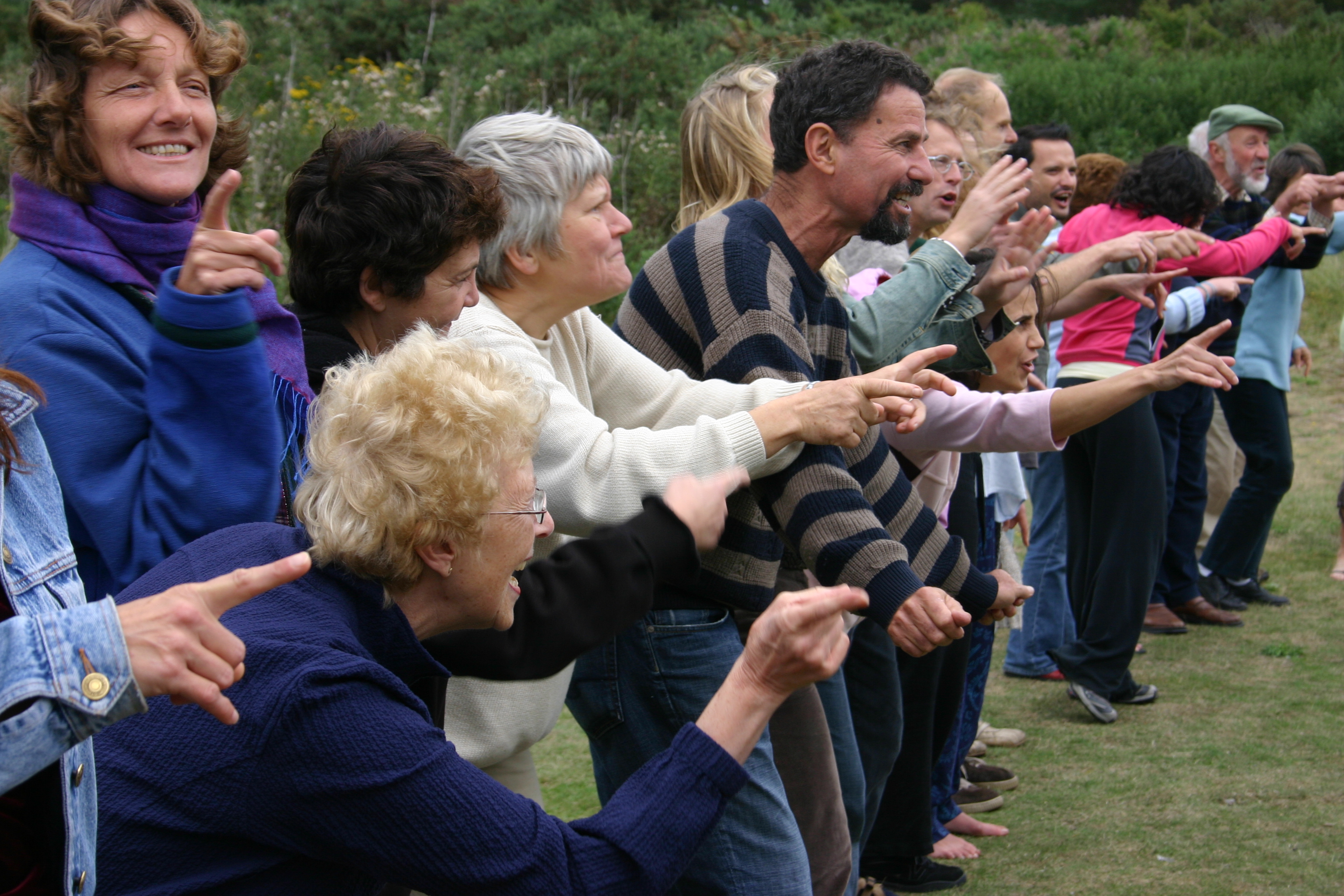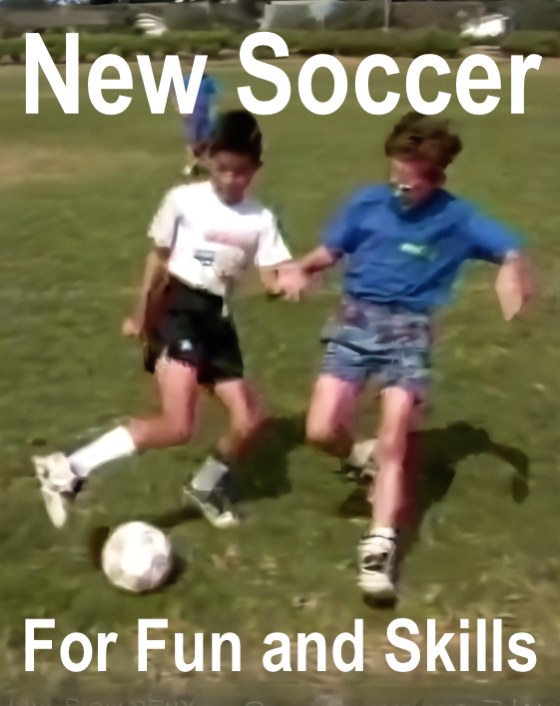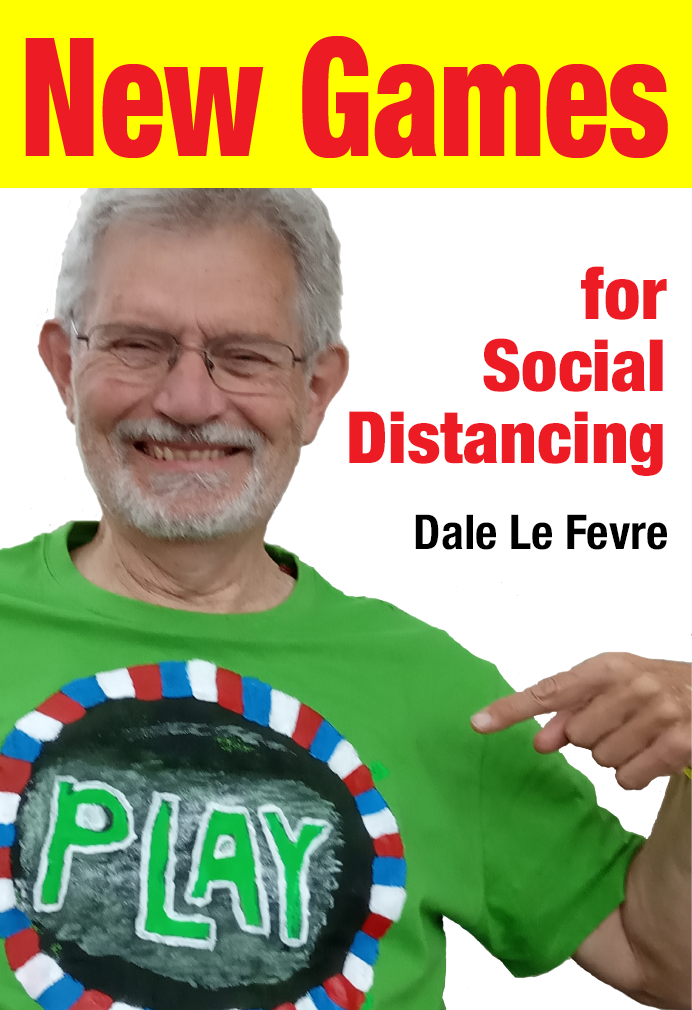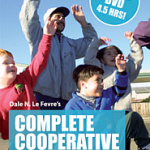
New Games over the years
From the beginning we knew that we had a way of relating to each other, an idea of fun and inclusion that was different than the norm of all-out competition where the winner takes all, gets the accolades, and takes home the trophy. This is still the dominant theme in physical games. With New Games, the winner doesn’t matter and just helps start the next game while we keep on playing. Often times, people such as a little kid, older woman, or another unlikely candidate “win” a game when they had never had done so before, which is both surprising and moving for them.
New Games for everyone!
What it has lead to is doing New Games with all varieties of populations: older people, handicapped, autistic, prisoners, just to name a few that I’ve worked with personally. While the way the games are played is similar, we discovered that the way we present them and adapt them for the group is different. For instance, I might use a fairy tale to introduce “Zoom,” a game where the sound “zoom” is passed from person to person in a circle, to kindergarten children. For a business crowd, as I did recently in Geneva, Switzerland, I made it all about driving a sports car. Same game, different presentation and approach.
While presenting New Games, I also became aware of my own limitations. While planning my first 2 hour session for a senior citizens center in San Francisco, I came up with five games I was pretty sure they could do, another six I thought they might be able to do, and a whole lot of games I thought there was no way they could do. When they arrived, I was taken aback – not only were they old, some were in wheel chairs and others were missing limbs. I was not expecting that. I had no idea how I was going to get through two hours with this group. I went on to do the five “safe” games with no problems, but it only took twenty minutes. Then I tried the six “maybe” games, which also went well, but were done in another twenty five minutes. Now what?
The group was having fun and because I didn’t know what else to do, I tried the games that I didn’t think would work. Surprisingly (to me, anyway) they adapted the games themselves to suite their abilities, sometimes making suggestions so that everyone could all participate and enjoy the game. For example, when we played “Octopus,” which calls for running, they simply each went at their own speed, which in some cases meant slow walking. They still seemed to be having great fun. When one elderly man started wobbling and looked like walking was too big a challenge, without a word being said someone paired up with the man, giving him a hand of support. I came away realizing the limitations were more in my mind than theirs.
New Games now
In the last installment of this article, we will look at how New Games are relevant in the present.






 New Soccer
New Soccer New Fully Printed Earthball
New Fully Printed Earthball New Games For Social Distancing
New Games For Social Distancing Complete Cooperative New Games (DVDs or Downloads)
Complete Cooperative New Games (DVDs or Downloads)
Hi Dale,
I’m a self-employed psychologist here in Reno.
I’ve been teaching and leading workshops in cooperative play for parents, teachers and children for many years. I’m teaching a four-hour class for day-care providers in a couple of weeks.
I was pleasantly surprised to see that you and New Games are still around.
Do you have any workshops planned for northern Nevada?
Keep up the good work,
Bob Quilitch